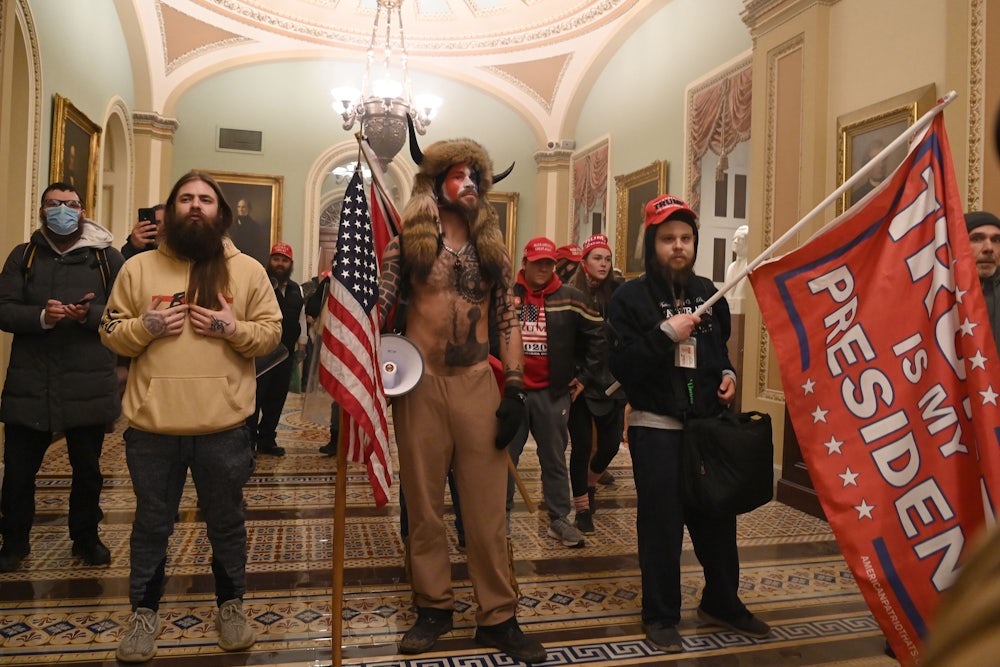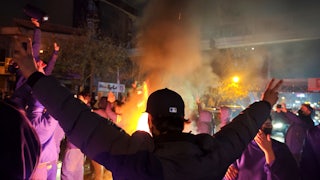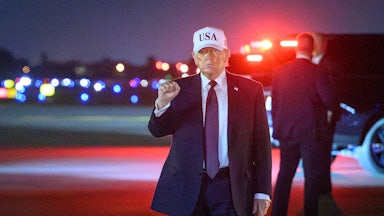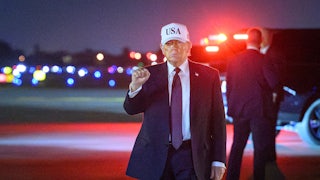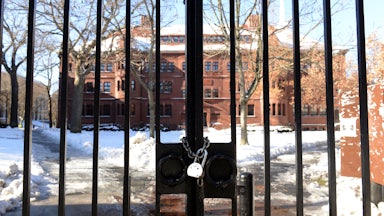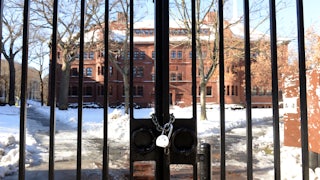Over the last six months, Republicans have tried to rewrite the history of the January assault on the Capitol, casting a violent attempt to overturn the presidential election as a love-in, a peaceful gathering of patriots who were, deep down, no different from tourists. At the same time, congressional Republicans have done all they can to sabotage any examination of the riot at the Capitol. In late May, Senate Republicans blocked legislation to establish an independent commission aimed at investigating January 6. House Speaker Nancy Pelosi responded by creating a committee to look into the attack, but the GOP has sought to sandbag that as well. Tasked with naming five Republicans to the committee earlier this week, Minority Leader Kevin McCarthy included two, Jim Banks and Jim Jordan, who have both raised unfounded claims of fraud and illegality relating to the 2020 presidential election. When Pelosi vetoed Banks and Jordan, McCarthy announced Republicans would be boycotting the committee entirely.
The obvious conclusion is that the GOP is not interested in investigating January 6 because the party is politically dependent on a set of lies about the attack and related conspiracy theories regarding the 2020 election. Its base tends to believe the nonsense that motivated that mob to storm the Capitol; no wonder the GOP wants to whitewash and forget that event. No investigation into what happened on January 6 could be credible in its eyes unless it somehow, against all evidence, concluded that the violent assault was peaceful and that Donald Trump was the legitimate president.
And yet a number of people who report on and analyze politics for a living have come to quite a different conclusion: that by rejecting Banks and Jordan, Pelosi is not only playing politics but playing it badly. “If you ever held any hope that the House select committee on the January 6 US Capitol riot might produce a report that would help us understand what happened in the lead-up to that day and, in so doing, provide us avenues to keeping it from happening again, you should give up on those hopes now,” wrote CNN politics-knowing guy Chris Cillizza, who went on to note that the decision to reject Banks and Jordan “dooms even the possibility of the committee being perceived as bipartisan or its eventual findings being seen as independent.”
Politico Playbook, the widely read tipsheet for lobbyists and weapons contractors, came to a similar conclusion on Thursday. Its authors wrote that Pelosi’s decision made “the investigation even easier to dismiss for people who aren’t die-hard members of Team Blue.” The proof was in the pudding: “Immediately after, left-wing Twitter cheered her announcement, while Republicans rallied to denounce it.” The Washington Post, meanwhile, sagely observed that we have a classic case of both sides being craven on our hands: “Both parties have attacked the other as insincere and uninterested in conducting a fair-minded examination of the attack by Trump supporters seeking to overturn the 2020 election.”
This analysis could only emerge from the goldfish-brained world of Beltway journalism, in which no information is retained for more than a day or two. In this myopic vision of D.C., reality is merely somewhere in between where Team Blue says it is and where Team Red says it is. Having been spun by both Democrats and Republicans, these writers can only conclude that both sides—shocker!—are playing politics, which happens to be a big part of being a politician. No conclusion can be drawn, however, about the actual substance of what they’re saying.
What criticisms of Pelosi’s move miss is an answer to a simple question. The Washington Post’s Greg Sargent put it this way: “What sort of inquiry into Jan. 6 would Republicans declare to be a legitimate one?” We know the answer: No such inquiry exists.
Criticisms of Pelosi assume that McCarthy was acting in good faith when he placed two bomb-throwers on the January 6 committee. These analysts also assume, for reasons they never explain, that Republicans would have been more likely to accept the findings of the committee if Banks and Jordan were on it, even though they were clearly placed on it to delegitimize it. The congressmen were not going to see the light about the attack on the Capitol; instead, they were placed to represent Republicans clinging to a lie—and to advance that lie on the committee.
Pelosi, in this context, was in something of a bind. She could either have a committee with two bad-faith actors on it whose entire purpose would be to disrupt and distract that committee. Or she could take heat for being “partisan” but end up with a more serious group of legislators. (Liz Cheney, who was until very recently conference chair of the House GOP, before being stripped of her position for criticizing Trump, is currently the lone Republican on the committee. Pelosi is also reportedly considering adding at least one other anti-Trump Republican.) It’s hard to fault her for taking the latter course.
And yet that’s what many in the Beltway media have done, arguing that this is just another sigh-inducing instance of partisanship in Washington. Why can’t both parties just stop messing around and get things done? If only Nancy Pelosi would stop playing politics and allow people who tried to overturn a legitimate presidential election to serve on a committee investigating a violent attempt to overturn a legitimate presidential election!
There is always a lot to criticize the Democrats for, but when it comes to democracy and its future, the analysis is straightforward: One party is actively working to subvert it, and the other isn’t. The fight over the January 6 committee isn’t just another partisan brawl—it reflects a larger battle over truth and democracy. Who’s right, the people brazenly lying to the public and stoking conspiracy theories, or the other people? If you’re a political journalist in D.C., it’s impossible to say one way or another.
